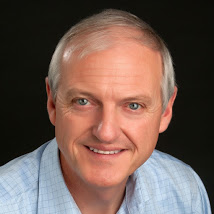Talk it Out: Grief, Peace Officers, and Post-Traumatic Stress
/Today marks the two year anniversary of Butch Baker and Elizabeth Butler's deaths. Both were detectives with Santa Cruz Police Department, and were killed on duty. It's fitting that on this day, Garry Rodgers, a former peace officer in Canada, shares his insights on stress, grief, and the need to talk about on-duty trauma as a way to heal.
Garry Rodgers is a retired Royal Canadian Mounted Police homicide detective and forensic coroner. He also served as a sniper on British SAS-trained Emergency Response Teams. He is currently an Amazon Top 10 Best-Selling Crime Writer for No Witnesses to Nothing, and Blogger at Dyingwords.net. He has a wealth of knowledge regarding the stress that peace officers and their families experience, as well as first hand experience of what it is to lose a fellow officer on the job. I invited Garry to share his insights about post-traumatic stress, what helps survivors—both peace officer and civilians—after a traumatic loss, and his newfound success of writing fiction crime dramas.
What drew you to law enforcement? I grew up in a small Canadian town in the 70’s where the Mounties were held in high esteem. I wanted to be part of a greater purpose, to contribute, and to experience life beyond the backward, routine of my sheltered world. I’ve always been a risk-taker and adventure junkie.
You shared with me that you were with your partner on the force—who was also your dearest friend—when he was killed. How did that affect you? What was the process of working through the grief, anger, guilt? Was there a formal way in which the department debriefed you? It’s 30 years ago this March 19th that RCMP Constable Mike Buday was cold-bloodedly shot in the back by a deranged bushman. We were part of an Emergency Response Team (SWAT) operation sent to arrest a madman wanted for murder in the frozen wilds of the Canadian north. Long story short, he got the drop on us, murdered Mike, then pulled the trigger on me. His round failed to go off and I returned fire, killing him. It was over in two seconds. Putting my best buddy in a body bag is the hardest thing I’ve ever done. Not only did I train with Mike from day one, but also he lived with me, and I had to go home to a house with all Mike’s stuff, but no Mike. Going into his room, I broke into gut-heaving grief… guilt… remorse. I dehydrated from tears and suffocated from a black cloud of guilt. If only I’d been more alert. If only I reacted more quickly. If only I didn’t cheat Mike out of life. If only… if only… if only… I drank. In drunkenness I’d talk to Mike, apologizing for not saving him and asking his direction, but he never answered. I had to move forward. My grief lasted weeks, then eased with months, and settled out after a few years where I could talk about it without breaking into shakes & sweats. Guilt and remorse took longer to dissipate than grief. Eventually, I rationalized what went down at that frozen place. We were bloody lucky that it wasn’t a helluva lot worse. Where I saw myself as a loser for letting Mike get murdered, others saw me as a hero for ending the incident and saving other lives. I no longer have guilt or remorse about it, and anger was never a factor. Aside from my personal black pit at the time, my team-mates and other of Mike’s friends were also in pieces. We were young and this was the first real shocking tragedy we’d experienced. I put on a brave face to help them, which helped me keep it together. The Police Force was so supportive. This was 1985, and PTSD was on the verge of being recognized. We had numerous professionally assisted psychological sessions with the officers involved, direct family members, peripheral colleagues, and anyone who wanted to talk. Talking it out, in my opinion, is the best therapy in dealing with grief. And time. PTSD is a different animal than grief. PTSD is a very real, very dangerous disorder, whereas grief is a natural, dissipating reaction that eases with time. My feeling about dealing with grief is to have as many people around you as quickly as you can, talk about the good times, and then time will heal. Fortunately, I’ve never displayed the classic symptoms of PTSD, but I certainly know other who have. In fact, I wrote a piece about PTSD that can be found at http://dyingwords.net/post-traumatic-stress-disorder-nasty-bitch/#sthash.ock3exn2.dpbs.
We hear of a great deal of marital/family stress in peace officers. Thoughts? On-duty police officers are always under threat and that breeds an overly protective mentality. Most police officers spend way more time with their cop-family than their own. Their cop-family is always at immediate risk of danger. Being trained first responders, officers will naturally respond to the immediate threat, and leaving domestic issues to deal with later. It’s when they go home that domestic trouble starts. Wife: “I had a hard day with the kids.” Officer: “You have no idea what hard is.”
You transitioned to coroner later in life. Describe that decision. How did this job compare to being a peace officer? I spent most of my policing career investigating homicides, so I had the background in death investigation, which made me ideal for being appointed as a coroner. In my jurisdiction, coroners contract out medical support services, such as autopsies and toxicology, whereas medical examiners contract out the field investigations. I found the science end of the job fascinating, but the emotional end of dealing with families took its toll. Homicides are rare in a coroner’s workload. It’s the accidents, suicides, and the ordinary natural deaths that get emotional. Crime scenes are extremely protected before the coroner arrives, and then you’re guided in like some kind of savior. Suicides & accidents are less supported, but in natural deaths, there’s usually only the coroner and the distraught, grieving family present. That’s where you have to be part-priest and it’s tough. There’s little stress in being a coroner as long as you keep it in check. For one thing, you’re never first on the scene. Secondly, you have total control over the scene once you arrive. So the tendency for emotions running away is minimized. It’s nothing compared to being a cop. There’s virtually no danger to a coroner, whereas it’s the police job to diffuse and secure the situation before a coroner arrives. Coroners control death investigations and have immense powers of search, seizure, and forcing co-operation. Compassion is another story. In my jurisdiction, coroners are appointed, not elected. The criteria are not only the ability to handle death scenes, but to compassionately deal with emotional, grief-stricken families. That’s the tough part.
What would be your recommendation to peace officers, paramedics, firefighters, counselors, emergency medicine physicians, and nurses, or anyone exposed to high stress on the job?Talk. Talk as much as you can to family, peers, subordinates, superiors. Group therapy is as good as one-on-one. Bring on professional consultants. Don’t wait until a critical incident occurs. Don’t be reactive. Be proactive. Make psychological awareness part of your training program. And remember – it’s okay to talk about it.
Did you always want to write? Talk about this transition, and how life experience helped shape your writing. For years I’ve read and written all sorts of things, not just legal, forensic, & technical stuff. Crime-fiction is my genre, and it’s so different from technical writing. For instance ‘suspension-of-disbelief’ devices are used in fiction such as dialogue, character development, and beats. It’s been a huge learning curve. I went back to school, learned a new craft, and networked with other writers. I also built a blog, which has been really successful, both in polishing my writing voice and getting noticed.
Thank you, Garry, for your openness about grief and trauma amidst peace officers, and the importance of "talking it out."
No Witnesses To Nothing
http://www.amazon.com/No-Witnesses-Nothing-Garry-Rodgers-ebook/dp/B00AJZR28Y/
Website http://dyingwords.net/ Twitter https://twitter.com/GarryRodgers1
Email Garry.rodgers@shaw.ca









